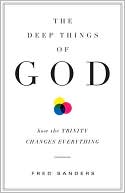Acts 6 (Click to read)
The priority of proclaiming God’s truth was a clear passion of the early church. Acts 6:1-7 make that evident as much as any other passage in the book. This first church had a major concern for the poor and destitute (2:44; 3:1-7; 4:32, 37; 5:12-16). And the apostles certainly seemed to lead the way in this concern as picked up where their teacher, Jesus, left off. Yet the burdens of the people, due most likely to the amount of people, became so great that preaching and prayer were getting neglected. What is evidenced here is not just good management strategy. The apostles refused to lay off the task of preaching for the task of caring for physical needs.
This priority of God’s truth is further seen in the following account of Stephen. If ever there was a man in this group that resounded love, integrity, graciousness, and joy, it was Stephen. Luke deliberately draws attention to the links between the injustice done to Stephen and the injustice done to Jesus. Both were tried on trumped up charges. Both were totally innocent. Both had false witnesses accuse them. And like Jesus, Stephen’s “face was like the face of an angel.” Okay, that was never actually said about Jesus. But the point, I think, of the statement is that like Jesus Stephen overflowed with kindness, love, and grace. He was so clearly innocent that even his enemies, though blinded by hatred, could see the goodness of this man. Just like Jesus, he was not being tried because of his love for the poor, his kindness to widows, or even for the miracles that he did. He was going to die because he spoke truth. His enemies instigated his demise simply because “they could not withstand the wisdom and the Spirit with which he was speaking”(6:1). They couldn’t refute him. They knew what he said was true.
So why do people kill other people for saying what they know is true? The answer is that human beings don’t care so much about what is true, but about what they want to be true. Such is the nature of all mankind. So what do you do with people who not only don’t believe the truth but don’t even want to believe the truth? The early church’s answer was quite simple. You proclaim truth, you trust God, and you expect to suffer. Two things always happen when God’s saving truth is proclaimed: 1) God uses the truth to make unbelieving hearts believe (“And the word of God continued to increase . . .” 6:7), and 2) individuals harden their hearts against it and lash out at you. So these first Christians merely made known God’s salvation and expected both of these to happen. And so should we.
Subscribe to:
Post Comments (Atom)









No comments:
Post a Comment